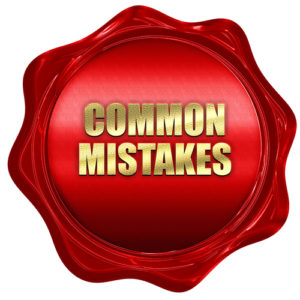Special to the Financial Independence Hub
You’ve probably heard it plenty of times: buying a home is the single biggest financial transaction of your lifetime. But purchasing a home can also be a great long-term investment — when it’s done right.
Buying a home for the first time can either set you on the right financial path or be a drain on your finances. It completely depends on how you go about it, and is why time is well spent reading great resources, such as the LowestRates.ca first-time homebuyer’s guide.
I wrote about the most common mistakes first-time homebuyers make in my new book, Burn Your Mortgage. Here are some highlights:
1.) Buying “Too Much” House
The simplest way to eventually be mortgage-free is to not take on a massive mortgage. The lower your mortgage, the less time it takes to pay off.
Getting pre-approved for a mortgage tells you how much home you can afford. But just because the bank says you can spend up to $800,000 on a home doesn’t mean you should. The word “can” is key here, and is what many homebuyers overlook. You don’t want to spend so much on a home that it’s a drag on your finances. Otherwise you could find yourself “house rich, cash poor,” with little money to save, let alone have fun with. Instead of your castle, your home could feel like a prison, with your mortgage a life sentence. By buying a home you can comfortably afford you maintain the financial wiggle room to deal with a financial emergency, such as losing your job or suffering severe damage to your home.
2.) Forgetting to Budget for Closing Costs
Closing costs are referred to as the transactional cost of real estate and are often overlooked by homebuyers. They’re anything but a drop in the bucket though, typically adding up to between 1.5% and 4% of a home’s purchase price. Common closing costs include home inspection, real estate lawyer fees, land transfer tax and appraisal fees.
To illustrate how much closing costs can add up to, let’s run through an example. If you’re buying a $500,000 home, you’ll have to budget up to $20,000 (4%) for closing costs. That’s as much as a new car!
The good news for first-time homebuyers is that you may catch a break on some of your closing costs. To encourage people to become homeowners, many provincial governments offer first-time homebuyers rebates on land transfer taxes. These rebates can mean thousands of dollars in tax savings, so take advantage of them.
3.) Shopping for a Mortgage Based Solely on the Rate
The lowest mortgage rate may be the best mortgage, but there’s no guarantee. Although a lower mortgage rate can help you save thousands of dollars in interest over the life of the mortgage, it may not be worth it. It may come with restrictions like stiffer mortgage penalties, limited prepayment privileges and shorter closing times (some lenders offer a lower rate when your mortgage closes in 30 to 45 days). In some cases, it can actually make sense to choose a mortgage with a slightly higher rate (e.g., 0.10% to 0.20% higher than the lowest available rate). So do your homework: a slightly higher rate may be worth stomaching for greater prepayment privileges.
 Sean Cooper is an in-demand personal finance journalist, speaker and money coach. He’s the author of the new book, Burn Your Mortgage, available now on Amazon and at Chapters, Indigo and major bookstores.
Sean Cooper is an in-demand personal finance journalist, speaker and money coach. He’s the author of the new book, Burn Your Mortgage, available now on Amazon and at Chapters, Indigo and major bookstores.



